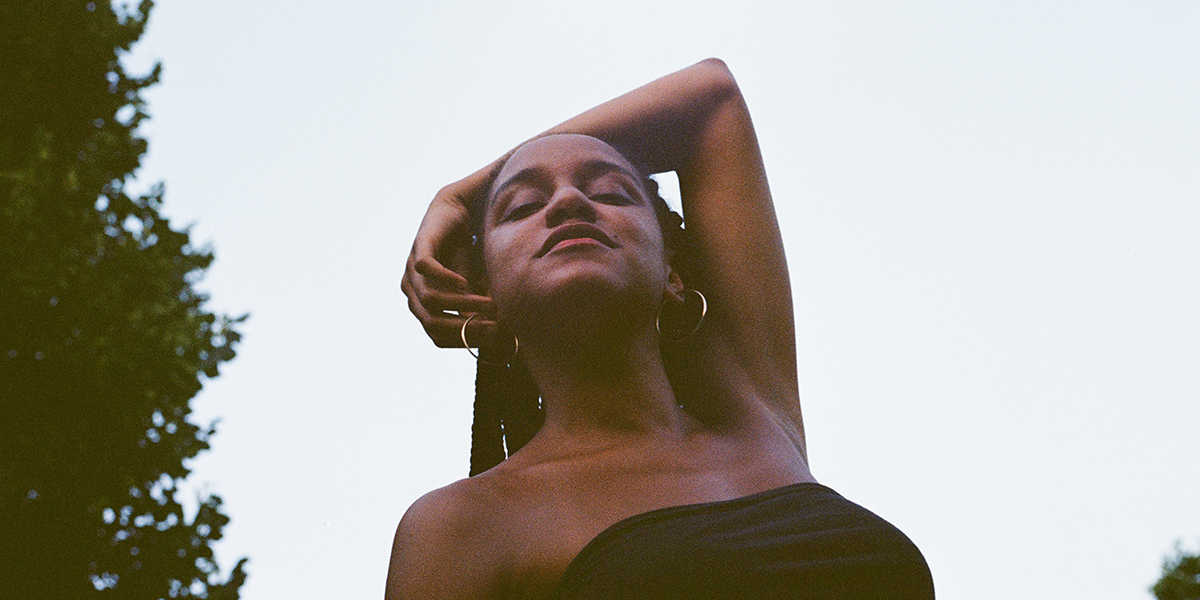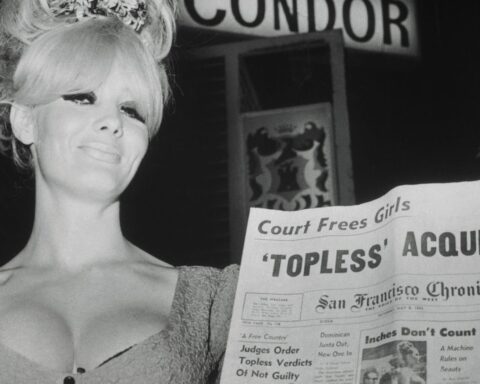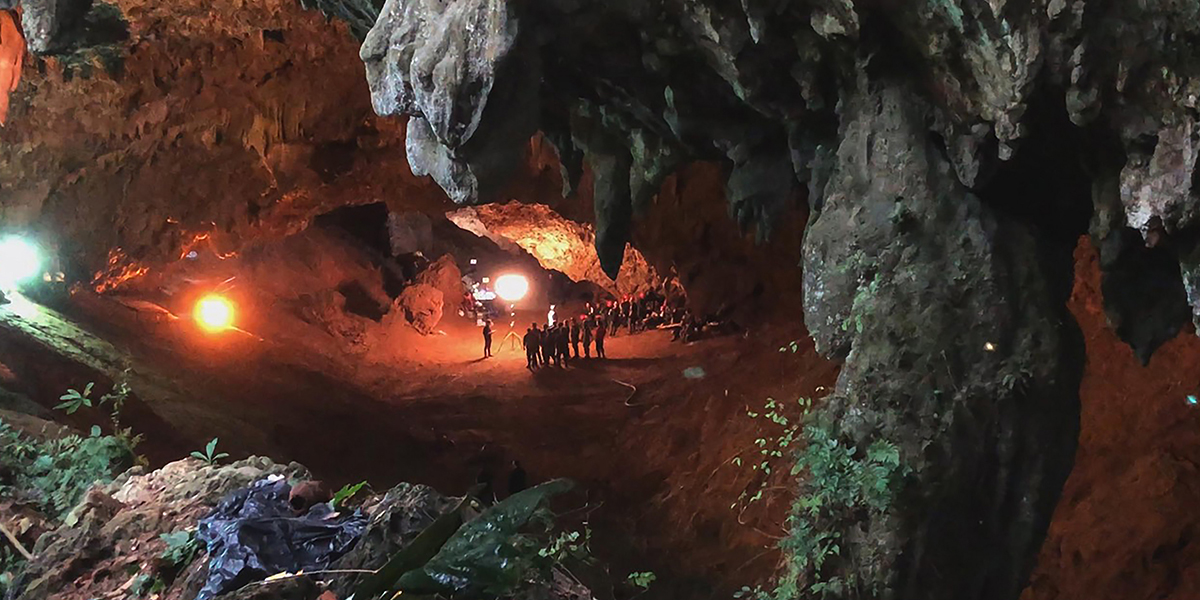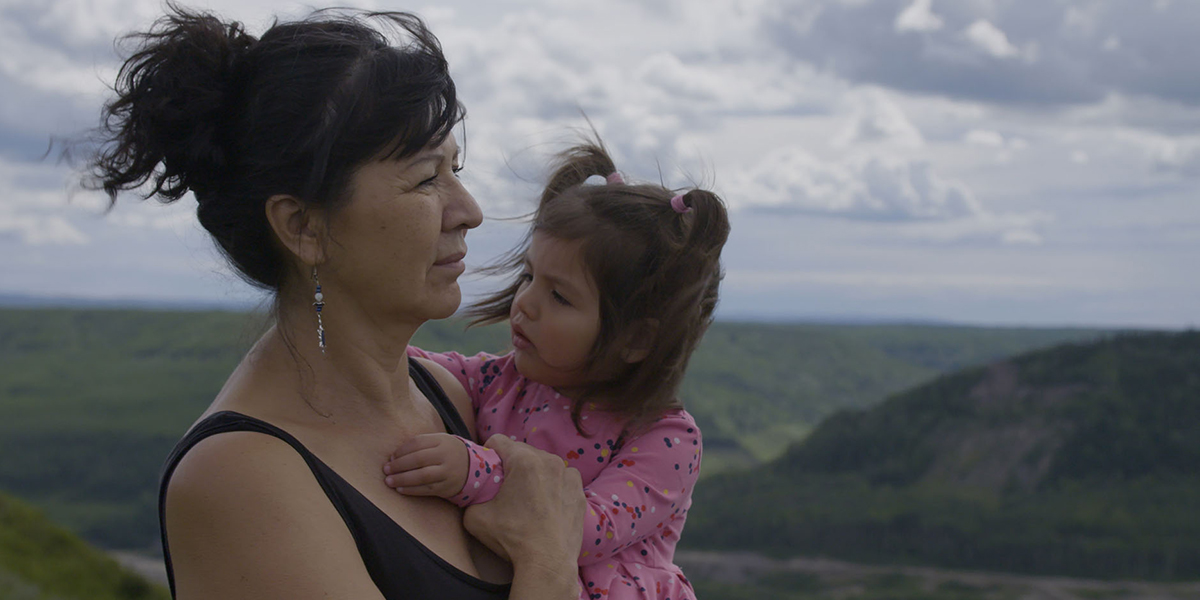Beba is a beautiful, raw, tender movie. An astonishing autobiographical documentary debut by Rebeca “Beba” Huntt, it is memoir steeped in bouts of surrealism, treading the fresh, experimental, but still somehow familiar path of films like Terence Nance’s An Oversimplification of Her Beauty. It has a loose, experimental visual style reminiscent of the type of ambitious, ambiguous storytelling found in certain neo-soul music videos from young Black artists like Arlo Parks’ “Too Good”, or the Sliding Doors-esque video for “If You Care” by Q.
The comparison to Terence Nance is one that director Huntt takes to heart, having, like many of us, been blown away by the artistry of the avant-garde director’s 2012 offering. “Oversimplification of Her Beauty was a humongous influence not only for this film, but it was just a moment where I was like, ‘Fuck yeah, I’m supposed to be a film director.’ It was a huge sign for me.” As unique as Huntt’s cinematic voice is with this film, she is the first to point out how invaluable her majorly female production team was in bringing this almost decade-long vision to life.
“Having such an incredible producer, Sofia Geld, who’s been with me from the beginning, and then slowly but surely building up a team that understood my vision, and wanted to help me, was incredible,” Huntt says. “They are just brilliant people with a level of emotional intelligence and tenacity and respect that was just… I mean, I can talk about my team all day.”
Shot primarily in lush 16mm film over the course of eight years with close collaborator Sophia Stieglitz behind the camera, Beba is an incisive exploration of the director’s often traumatic relationships to her family and dual cultural heritage as an Afro-Latina child of immigrants growing up in NYC. Huntt interrogates her artistic and creative impulses and influences, and delves deeply into herself.
The film is split into four chapters, a conceit suggested to Huntt by Terence Nance, with cryptic titles hinting at the contents laid out within.
“The Curse” details her parents’ divergent upbringing and meeting, and then unspools Beba and her siblings’ difficult childhood with summers spent with their Venezuelan family in a mountain pueblo.
“Mind Control” includes her educational and artistic experiences at Bard College, where her magnetic personality attracted a privileged friend circle but still left her lonely and soul-searching as one of only a handful of non-white students.
”Zombie Apocalypse” ruminates on police brutality and the tension of dealing with well-meaning white “allies,” the latter depicted through a staged recreation of the kinds of tone-deaf conversations that happened in the wake of the BLM movement. This chapter also reveals reflections on love and loss, and Black self-care and spiritual practices like hair braiding and grounding rituals by the water to reconnect to the earth.
Finally, “The Call Is Coming from Inside the House”, offers a truly scary return to her parents’ home to reconnect and attempt to reconcile the broken pieces they all carry within them–remnants of personal and historical trauma from both the Dominican and Venezuelan sides of the family.
Scattered through the narrative like seeds are voiceover quotes by those she considers her literary ancestors: James Baldwin, Maya Angelou, and Audre Lorde among others.
“There was a myriad of artists and filmmakers and writers and poets that helped, that I felt gave me the strength to keep going,” she notes.
Poetry is layered over stark protest scenes (“God, bring me back Black every time”), and recited in her own voice atop visuals of herself in lush forest, rubbing clay mud on her arms and body, and washing it off by swimming in a vegetation-rich river, looking like Millais’ famous 19th century painting of Ophelia floating in the reeds as she communes with her ancestors. (“Lost as I am, I say. Vast as you are, they say…”)
The cinematography is exceptional. Dreamlike visions of fields, skies, rivers, and dusty mountain vistas replicating her childhood summers in Venezuela contrast with New York City’s evening skylines seen from subway windows. These are punctuated by intimate, at times uncomfortable, interview scenes with her mother, father, and sister as she tries to draw out answers to lifelong questions about identity, conflict, family history, and inherited and ongoing trauma.
Music also plays a big role in the film, from Huntt name-checking the Lucky Dube songs her immigrant parents loved, to the brief, profound moments of bonding over new Jay-Z albums shared with her estranged older brother, the rapport providing a temporary truce. Then there is the beautiful, evocative score by composer Holland Andrews, which dances around, embraces and plays counterpoint to the emotional scenes in the film.
For Huntt, the process of putting the music together involved many vulnerable late-night phone calls, and this vulnerability emerges throughout the film.
Intimacy is revealed in fragments; visually, the camera lingers on a mirror in the corner of Beba’s childhood bedroom as she undresses just out of frame, and settles in long takes on close-ups of her hair being braided at her stylist’s home, while news about yet another police murder intrudes from a source out of frame.
Huntt’s impressionistic story is filled with small family moments growing up, tales both heartwarming and gut-wrenching, and an overall narration that reads like a series of unearthed diary entries, from the mundane to the tragic.
On the process of filming her family, Huntt doesn’t hide the emotional toll it took.
“It was incredibly anxiety-provoking for me but I just kept coming back to knowing what my intentions were,” she says. “And I know that no matter how complex my relationships are with each one of my family members, that what is underneath that is an infinite amount of love.”
Tense, brilliant, poetic, and emotionally brutal, aspects of this film will be painfully familiar to anyone with experience in navigating the treacherous emotional waters of growing up in immigrant households while trying to find a place in a contradictory society. But ultimately Beba is Rebeca Huntt’s universe. We’re all just visiting.
Beba premiered at the 2021 Toronto International Film Festival.
Update (2/17/2023: Beba is now streaming on MUBI. Watch it with a 30 day trial from POV.













